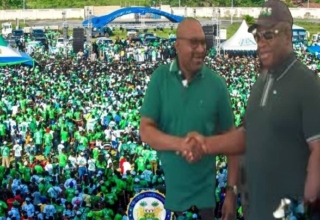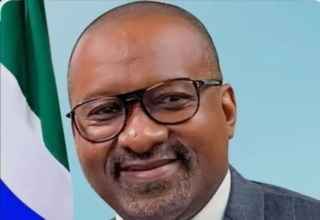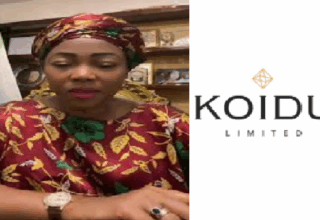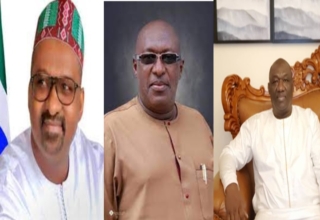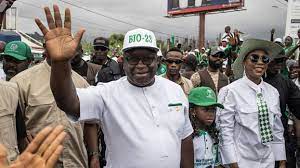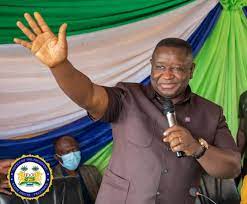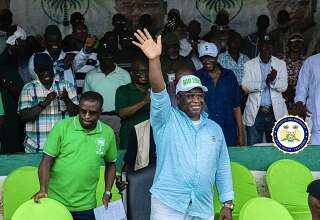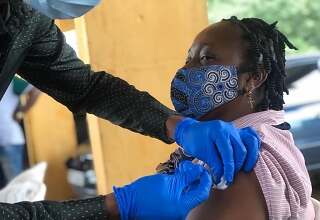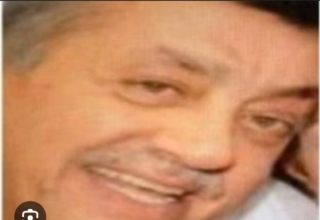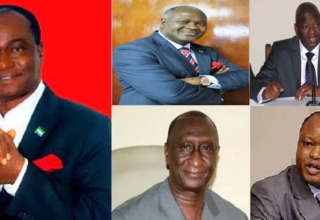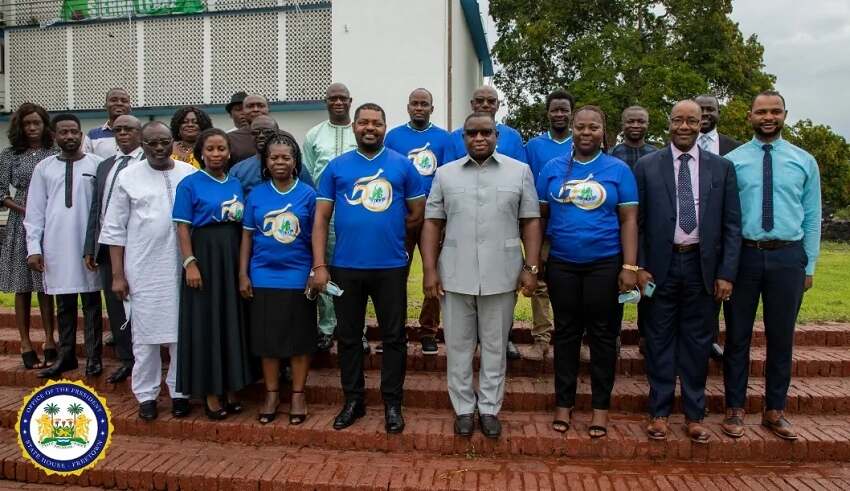
SLAJ recognises President Bio as press freedom champion
𝐁𝐲 𝐒𝐨𝐫𝐢𝐞 𝐅𝐨𝐟𝐚𝐧𝐚.
I started my Journalism career at the age of 19. At the age of 25, I became the editor of one of the leading newspapers in the country, the “Vision Newspaper” owned by Siaka Massaquoi.
Under the APC of Joseph Saidu Momoh, especially after the return to multi-party democracy in 1991, the press (or some sections of it) came under attack for merely reporting the news.
I was a reporter for the “Vision” newspaper in 1991 when the paper’s editor was arrested for reporting the outcome of a secret APC party meeting held in James Bambay Kamara’s office at Police Headquarters in Freetown. James Baimbay Kamara was the Inspector General of Police at the time. The paper’s managing editor, Siaka Massaquoi, was arrested and detained at the CID Headquarters in Freetown. The accuracy of the report was never denied but it was deemed to be a threat to national security. Siaka Massaquoi was later released without charge.
When the NPRC came to power in 1992, they enjoyed relative support from some sections of the press. They supported the “Daily Mail” and set up the “Liberty Voice”. Several newspapers critical of the NPRC were, on many occasions, forced to close shop.
After the NRPC left office in 1996, the civilian administration of Ahmad Tejan Kabbah also inherited a vibrant newspaper industry. The SLPP had some very good friends in the print media in the persons of Siaka Massaquoi (Vision Newspaper), Franklyn Bunting Davies (New Shaft), Vandi Kallon (Echo), George Khoryama (the New Sierra Leonean), King Hassan Baryoh (the Rural Post) etc. These people fought very hard to keep the SLPP in power. But they were hardly supported by the party in power. That has always been the case whenever the SLPP is voted into office. They tend to ignore their friendly media houses and their civil society friends.
All former Presidents of Sierra Leone failed to or refused to repeal the criminal and seditious libel law of 1965. That law impacted negatively on press freedom in Sierra Leone. Several Journalists got arrested and detained under this draconian piece of legislation.
My late elder brother, Lansana Fofana, spent nine months between 1990 and 1991 at the Pademba Road Prison for an editorial he published in Steve Roy’s “Chronicle Newspaper”. He was jailed for what Justice M.S. Turay of the Court of Appeal referred to as ‘contempt of court”.
Several journalists served time at the Pademba Road Prison for merely exercising their rights under the 1991 Constitution. Others got arrested and detained by the Police on orders from above.
During the Momoh era in 1990, I was arrested in Koidu Town, Kono district for publishing a story that exposed corruption in the Police Force involving the Chief Police Officer in Kono district, Yembeh Mansaray. After he retired from the Police, he became an elected Paramount Chief in Koinadugu district.
Under Tejan Kabbah, I was arrested and detained at the CID Headquarters for merely reporting in the “Vision” newspaper that, Kabbah’s National Security Adviser stopped the Police from searching his vehicle at a police checkpoint. Many of my colleagues suffered similar fate.
Under Ernest Bai Koroma (between 2007 and 2012), the media enjoyed relative stability. Koroma befriended a lot of the media owners in the country.
Between 2012 and 2018, Koroma fell out with a number of his friends in the media. His third term bid was undermined by some people in his party supported by some willing horses in the media. David Tam-Baryoh, Jonathan Leigh and a few others fell out of favour and were locked up at the Pademba Road Prison.
Between 2012 and 2018, I was advised by some of my friends in the APC to slow down as EBK had become desperate. EBK’s Attorney General once invited me to his private chamber and advised me to tone down my “attacks” on the government. He said that the President was very concerned that I was creating the impression in the Global Times newspaper that he was the one behind the third term campaign. He said, “The President is not interested in a third term”. I told him to tell the President to officially and publicly denounce the third term issue. That never happened. VP Sam Sumana came out and said that, he was sacked as VP because he was opposed to Koroma’s third term bid. The coin dropped!
𝐏𝐫𝐞𝐬𝐢𝐝𝐞𝐧𝐭 𝐁𝐢𝐨’ 𝐏𝐫𝐞𝐬𝐬 𝐅𝐫𝐞𝐞𝐝𝐨𝐦 𝐋𝐞𝐠𝐚𝐜𝐲
President Dr. Julius Maada Bio has been in office for four years now. He has six more years to go. He is on record to be one of the first African leaders to condemn Presidential term extension. The Army in Guinea, Conakry removed President Alpha Conde from office for extending his stay in office against the Constitution.
During his election campaign in 2018, President Bio promised to repeal the Public Order Act of 1965. Many people did not believe that he would have the courage to do so.
In 2020, President Bio decided to repeal the criminal and seditious libel law. That decision is in fulfilment of his manifesto commitment. TOK&DO!
In the World Press Freedom Index 2022, Sierra Leone moved 29 places higher from 75th position to 96th out of 180 countries due largely to the repeal of the criminal libel law. Journalists are now free to practice their profession without having to look over their shoulders anymore.
President Bio’s support for the media has been noted by even the President of SLAJ, Ahmed Sahid Nasralla, who wrote recently that, “The Government of Sierra Leone has announced an increment in its annual subvention to SLAJ from Le250 million to Le500 million.”.
President Bio has appointed more journalists in his government than any other President since Independence in 1961. Press freedom is one of President Bio’s greatest legacies since his election in April 2018.
President Bio will always be remembered for his political tolerance and inclusive governance, his love for a free press and the promotion and expansion of civil liberties in Sierra Leone.
The President of SLAJ has admitted that since President Bio came to office in April 2018 “No journalist has been put in jail in relation to the practice of Journalism”.
This is a home truth from a home boy!

